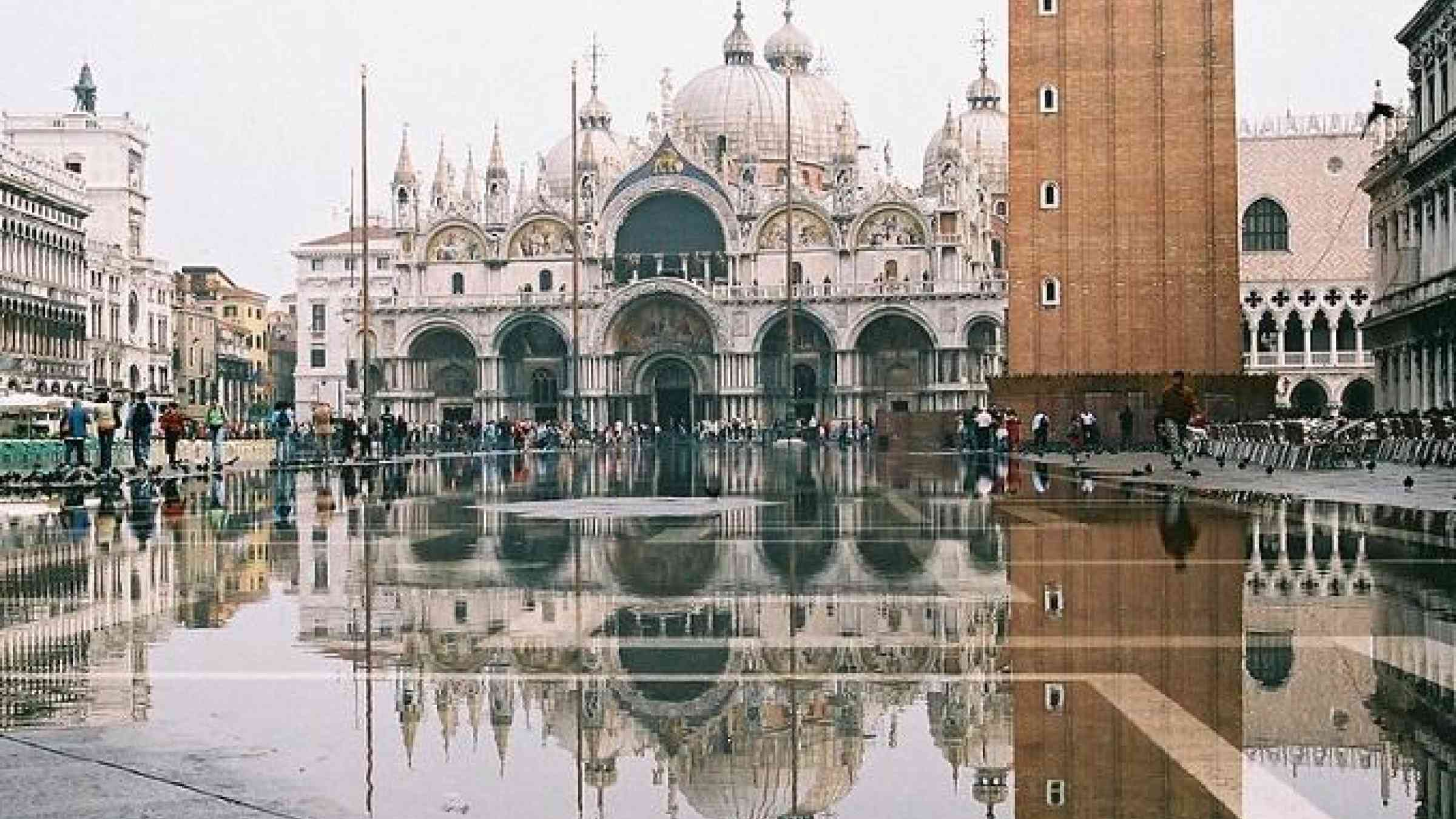Italy: Without better flood protection, Venice risks loss of heritage status

Growing damage to the historic city could imperil its status, UNESCO warns, as a flood protection system remains delayed
By Anna Scholz-Carlson
Venice could lose its status as a World Heritage Site if it does not adequately protect itself from worsening flooding, UNESCO representatives have warned, as they offered help after recent inundations.
"Key buildings which are within the World Heritage area are threatened … this is of great concern to us, especially as this is not a single incident," Mechtild Rössler, director of the World Heritage Centre told the Thomson Reuters Foundation.
Venice suffered heavy damage when floodwaters reached one of the highest levels in more than 50 years this month.
The city's historic Saint Mark's Basilica will need millions of euros of restoration work after its delicate marble mosaics were exposed to destructive salt water, its curator said.
Such damage is expected to worsen in years to come as climate change drives rising seas and more frequent inundations of the city's small islands, set within a saltwater lagoon, heritage experts say.
The World Heritage Committee, an independent body of 21 state representatives responsible for making decisions about heritage status, is reluctant to remove any site from the list, as inclusion is meant as a motive for conservation, Roni Amelan, a UNESCO spokesman said.
So far, just two sites have been removed from the World Heritage List, he said.
They include Oman's Arabian Oryx sanctuary in 2007, due to a lack of protection, and, in 2009, the Dresden Elbe Valley in Germany when a bridge was constructed across the site.
In both cases the "outstanding universal value" of the sites had been compromised, Amelan said in an email.
With Venice facing more frequent flooding, a UNESCO advisory mission to the city has been planned for 2020, with the World Heritage Centre preparing to dispatch experts to work with the city to assess what needs to be done.
Growing Risks
The city is revered as an architectural masterpiece and has one of the highest concentrations of famed art and architecture in the world, according to the heritage centre's website.
Its 118 small islands and lagoon were designed a World Heritage Site in 1987.
While the Italian city regularly experiences flooding in autumn and winter, recent floods, which peaked at 6 feet (1.8 metres) above sea level, are a clear indication of worsening climate change, Rössler said.
Global warming causes rising sea levels, and more extreme weather events, from heavier rain and storms to stronger winds that can push water toward the lagoon, Rössler said.
"UNESCO and the national authorities and the city have to deal with that in the long term," she said.
Venice has since 2003 worked on installing a system of flood protection gates called MOSE - the Experimental Electromechanical Module.
But the project, intended to keep high tides and other floodwaters out of the lagoon, has bogged down in a "myriad" of problems, Rössler said.
Critics say the project has been plagued by corruption, cost overruns and prolonged delays. Engineers now predict the sea defense system will be ready at the end of 2021, at a cost of 5.5 billion euros ($6.1 billion).
The project's original estimated cost was 1.6 billion euros ($1.8 billion).
World Heritage Centre officials also are concerned that, once the MOSE barriers are complete, the system, designed decades ago, may be inadequate to keep out ever-higher sea levels, Rössler said.
"This is not a project for now and tomorrow. This is a long-term project, and such a project needs to take into account the most recent studies," she noted.
Concerned about growing climate change risks, the heritage centre adopted a climate policy in 2007 and conducted a risk assessment of its sites.
UNESCO is also carrying out education and public awareness initiatives around climate change risks, according to its website. A 2018 study by the heritage centre found that 37 of 49 World Heritage cultural sites on the Mediterranean are already at risk of flooding, and 42 face coastal erosion threats.
Rössler said her organisation will make available to Venice cultural and natural heritage experts from their network, and could help with fundraising for restoration efforts, though Italy - home to 55 World Heritage sites - has plenty of expertise of its own, she said.
The worst recorded flooding to hit Venice came in 1966, when 6.4 feet (1.9 metres) swept into the city. After that, UNESCO launched an International Safeguarding Campaign and undertook work to restore and repair artworks and monuments.
This time as well, "we stand ready to help them as far as possible," Rössler said.